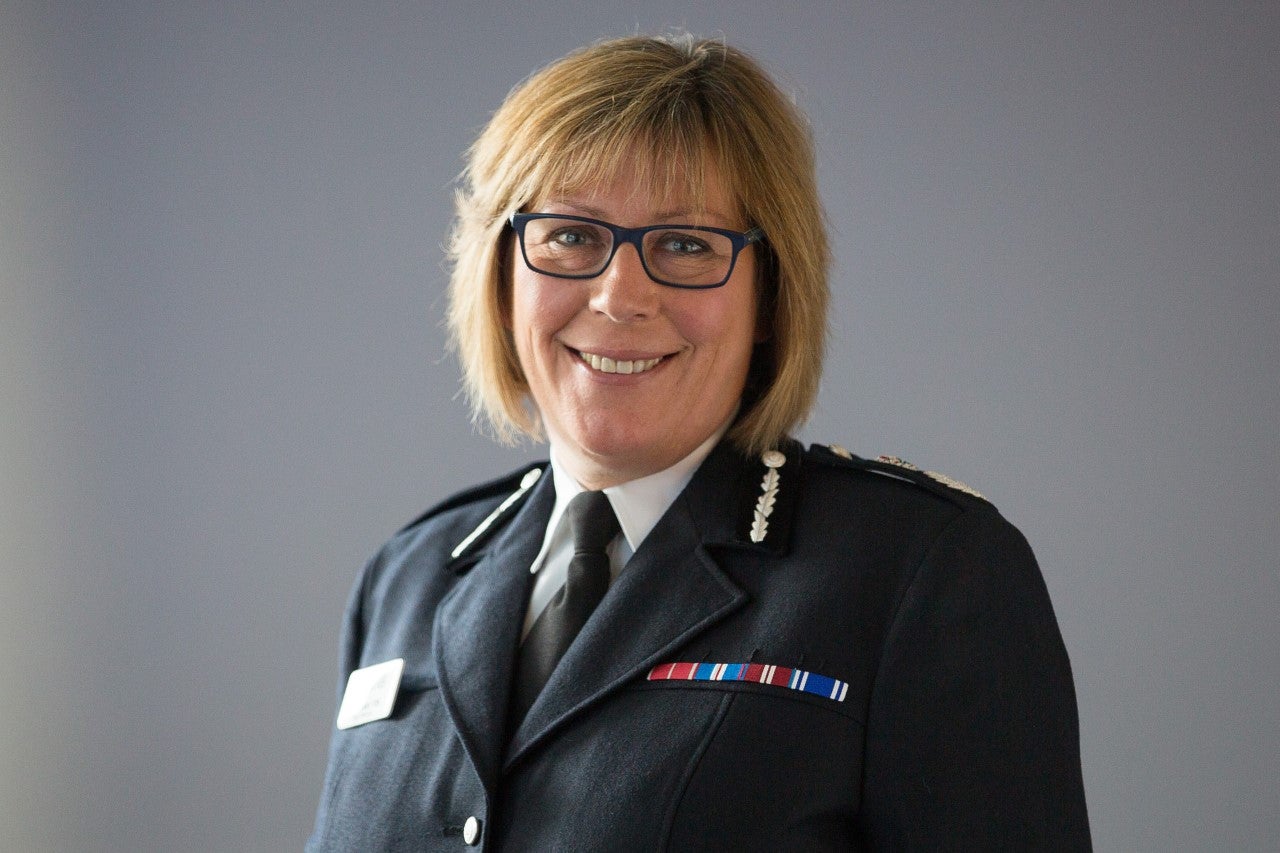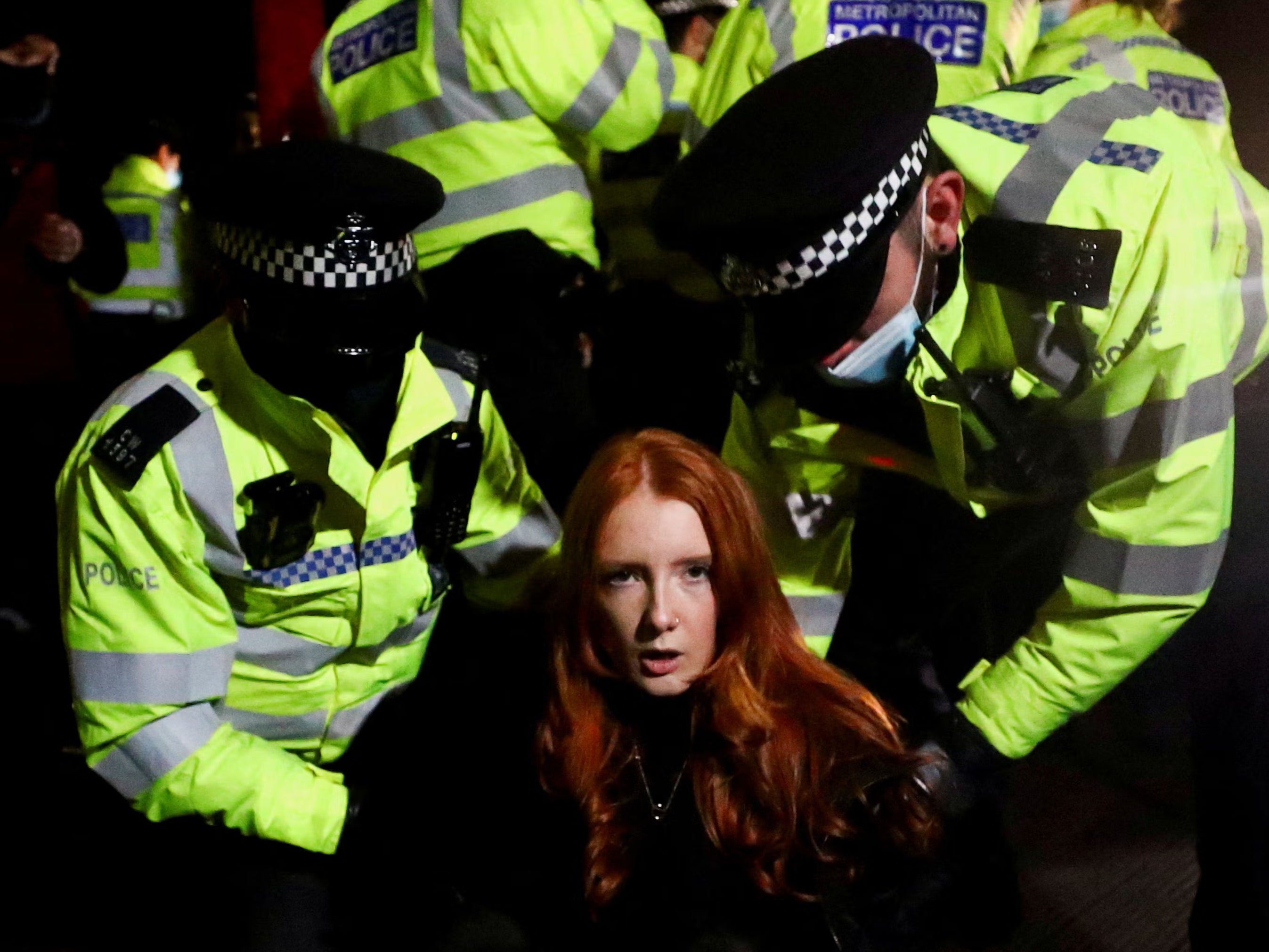‘Sarah Everard’s legacy’: Police sexual misconduct complaints soar by almost 50% in wake of murder
Exclusive: Too many women seen as a commodity by police officers to abuse, former police chief warns after figures show stark rise in complaints
Allegations of police sexual harassment and assault have soared by almost 50 per cent since the rape and murder of Sarah Everard by a serving police officer, The Independent can reveal.
Analysis of police watchdog figures by this publication has uncovered a dramatic spike in reports from members of the public about police sexual misconduct, with 293 complaints made against officers and staff last year.
The total includes more than 200 allegations of sexual assault, 20 accounts of sexual harassment and 65 complaints recorded as “other sexual conduct” against forces in England and Wales in 2022-2023.
This is up from 199 sexual conduct complaints lodged with the Independent Office for Police Conduct (IOPC) three years earlier – when police corruption was dramatically thrust into the limelight after Ms Everard was kidnapped and murdered by Metropolitan Police officer Wayne Couzens.
Former police chief Sue Fish warned: “Sadly, too many women are seen as a commodity by police officers and commodities to abuse.”
Labour MP Jess Phillips called for a “sea change” in police vetting to stamp out misogyny, adding there are still too many cases of forces “marking their own homework”.
The Independent can also report:
- Policing top brass fear those coming forward to make complaints are the “tip of the iceberg”
- The largest number of sexual conduct complaints were against the Metropolitan Police – Britain’s largest police force – with 50 lodged last year
- Shockingly, the IOPC noted 136 allegations classified as abuse of position or sexual conduct were handled informally by police forces – meaning the allegations were resolved without independent scrutiny
- There has also been a huge uptick in referrals from police forces to the IOPC in the years since Couzens was exposed, with numbers expected to top 7,000 this year – up from 4,000 five years ago.

Ms Fish, who was the first chief constable to ever record misogyny as a hate crime, said the growing numbers of women coming forward to report abuse are “Sarah Everard’s legacy” after her death ignited debate over police corruption and triggered a review of culture and standards at the Met by Baroness Louise Casey, who concluded the force is institutionally misogynistic.
But she fears the numbers are only the “tip of the iceberg” as many victims of police-perpetrated sexual abuse will still not feel safe to report their attacker, while campaigners warned sexual abuse is undermining trust in policing.
Ms Fish told The Independent: “You could say this is Sarah Everard’s legacy if you like – of women saying actually, this isn’t acceptable. And some women, but not all women, are increasingly able to stand up and say this is what’s happened to me – particularly in light of Baroness Casey’s review.
“They are saying they are absolutely fed up of being treated so appalling by people who are supposed to protect them and uphold the law and more power to them for calling it out.”
Ms Fish, who was awarded an OBE for services to policing before she retired as chief constable of Nottinghamshire Police in 2017, said most officers are joining the force to do good but that they swim in a pool which is “deeply misogynistic”.
“There is a failure in policing and in government to accept that the barrel is rotten,” she added. “If you can’t trust in the very institution who are meant to protect you, the whole system has failed.”

Ms Phillips, who used to be shadow minister for domestic violence and safeguarding, told The Independent: “There has got to be a sea change in vetting and disciplinary procedures within police. If we have any chance of rebuilding confidence for women in the police, this cannot wait and the government must ensure that every force is handling every case appropriately and ensuring independence in the process.
“At the moment, there are still too many cases of forces marking their own homework when it comes to domestic and sexual abuse allegations.”
The figures show some 24 complaints were made against police and staff at Thames Valley Police, while 15 were logged for both Greater Manchester and Nottinghamshire Police. West Midlands recorded 11 complaints, while 10 were logged against Essex Police.
A further 74 complaints were made of police abusing their position for a sexual purpose last year, although this is not recorded under “sexual conduct” by the police watchdog.
Despite the uptick in referrals from police forces to the IOPC in the years since Couzens was exposed, the watchdog’s capacity remains limited to around 300 independent investigations each year, meaning it is forced to make difficult trade-offs over which cases it chooses to pursue against officers.
The figures come after a former Cheshire Constabulary officer was this week found guilty of abusing his position for a sexual purpose after he had sex with a vulnerable domestic abuse victim during a police visit to her house in 2021. PC Jordan Masterson, 28, is due to be sentenced next month at Chester Crown Court.

The Met also this week announced PC Muhammed Miah had been charged with sexually assaulting a woman while off duty in January 2020. He is due to appear at Highbury Corner Magistrates’ Court next week accused of one count of sexual assault by touching.
Met officer PC Andrej Sagaidak was also due in court accused of two counts of rape, one count of non-fatal strangulation and one count of causing actual bodily harm against a man in north London on New Year’s Day.
Harriet Wistrich, director of the Centre for Women’s Justice, said while the focus on recent cases may be encouraging more women to come forward, there is still a long way to go for confidence in police to be restored.
She told The Independent: “The massive spike in complaints is extremely concerning.
“The extent of police sexual misconduct is undermining women’s trust in the police and tells us there is a long way to go before confidence can begin to be restored.”
Meanwhile, Patsy Stevenson, 31, who was dramatically pinned to the ground by police at a vigil for Ms Everard in March 2021 revealed she no longer trusts the police.

The former physics student said her life was transformed after she was thrust into the debate when pictures of her arrest made front-page news.
“It has been three years [since she was arrested at the Sarah Everard vigil] and I am still having to talk about this stuff and it is really sad,” she told The Independent.
“I think police have shown time and time again that they have perpetrators in the police and when women report issues, they are often met with victim-blaming. I just feel like police have still not held up their hands and been held accountable. We have not seen anything change at all.”
Anna Birley, co-founder of Reclaim These Streets – which organised the Sarah Everard vigil – said the need for wholesale police reform is more urgent than ever.
“Sexual assault and harassment is unacceptable in any context but it is even more serious and chilling when it’s so prevalent among the ranks of those who are tasked with keeping us safe,” she added.
“There appears to be no urgency and no accountability in British policing when this level of misogyny and misconduct is allowed to fester and flourish unchecked.”
The National Police Chiefs’ Council said forces take complaints from members of the public “very seriously” and insisted “change is happening” to tackle misogyny.
“We are fully committed to making sure those individuals who are not fit to wear the uniform are identified and removed from our forces,” a spokesperson told The Independent.
“Chief constables are continuing to bring forward serious cases which sanction or remove those who badly let the public down. This approach underlines our commitment to uphold high standards expected by the public.
“All forces have dedicated professional standards departments which investigate complaints against officers and staff. These departments work to strict guidelines, operate confidential reporting phone lines for both the public and colleagues to raise concerns and are regularly independently inspected. They proactively act upon intelligence to weed out the very small number of officers who do not uphold the standards of the service.
“Action is being taken and change is happening. We are working towards delivering those long-term improvements to standards and culture we have promised.”
Bookmark popover
Removed from bookmarks